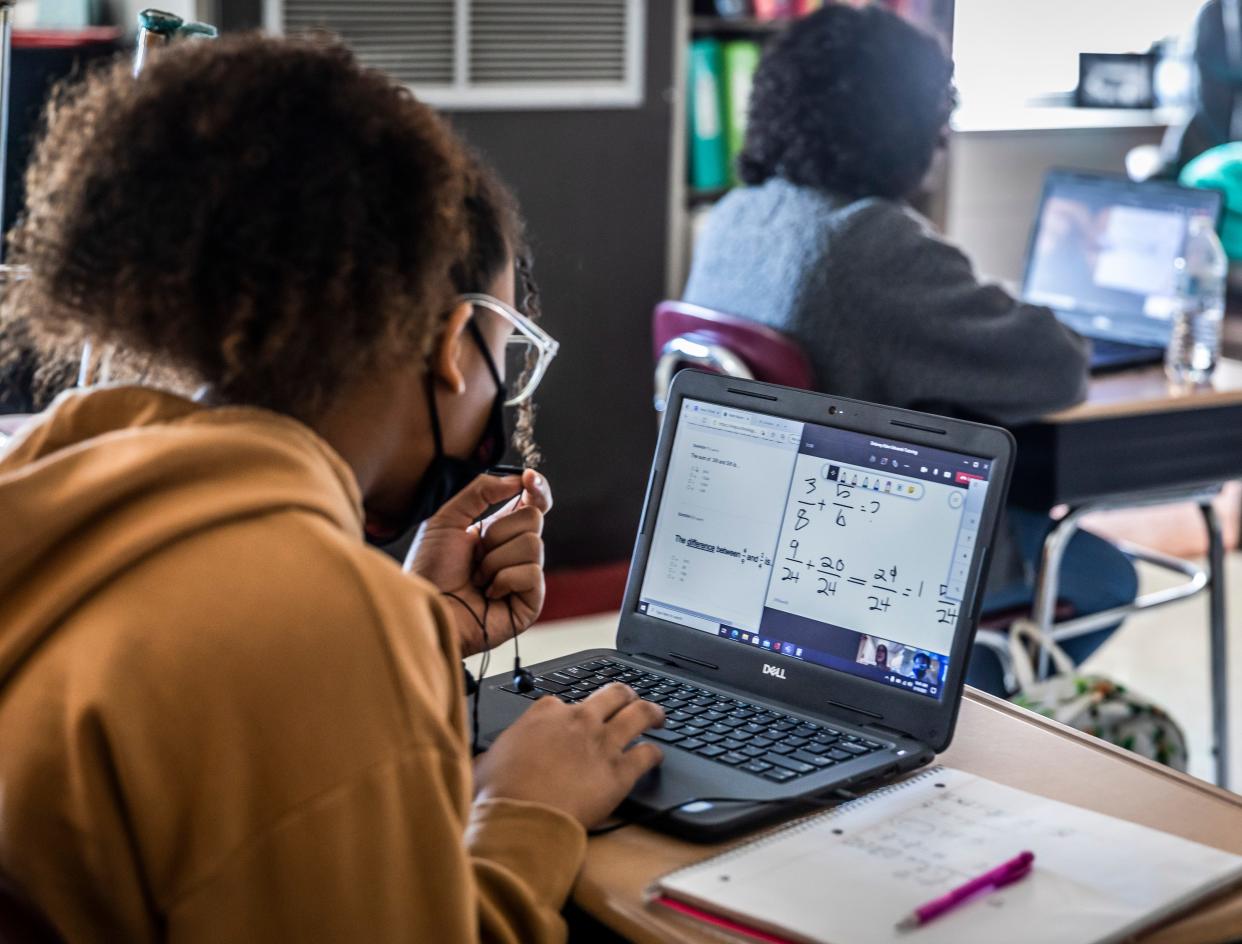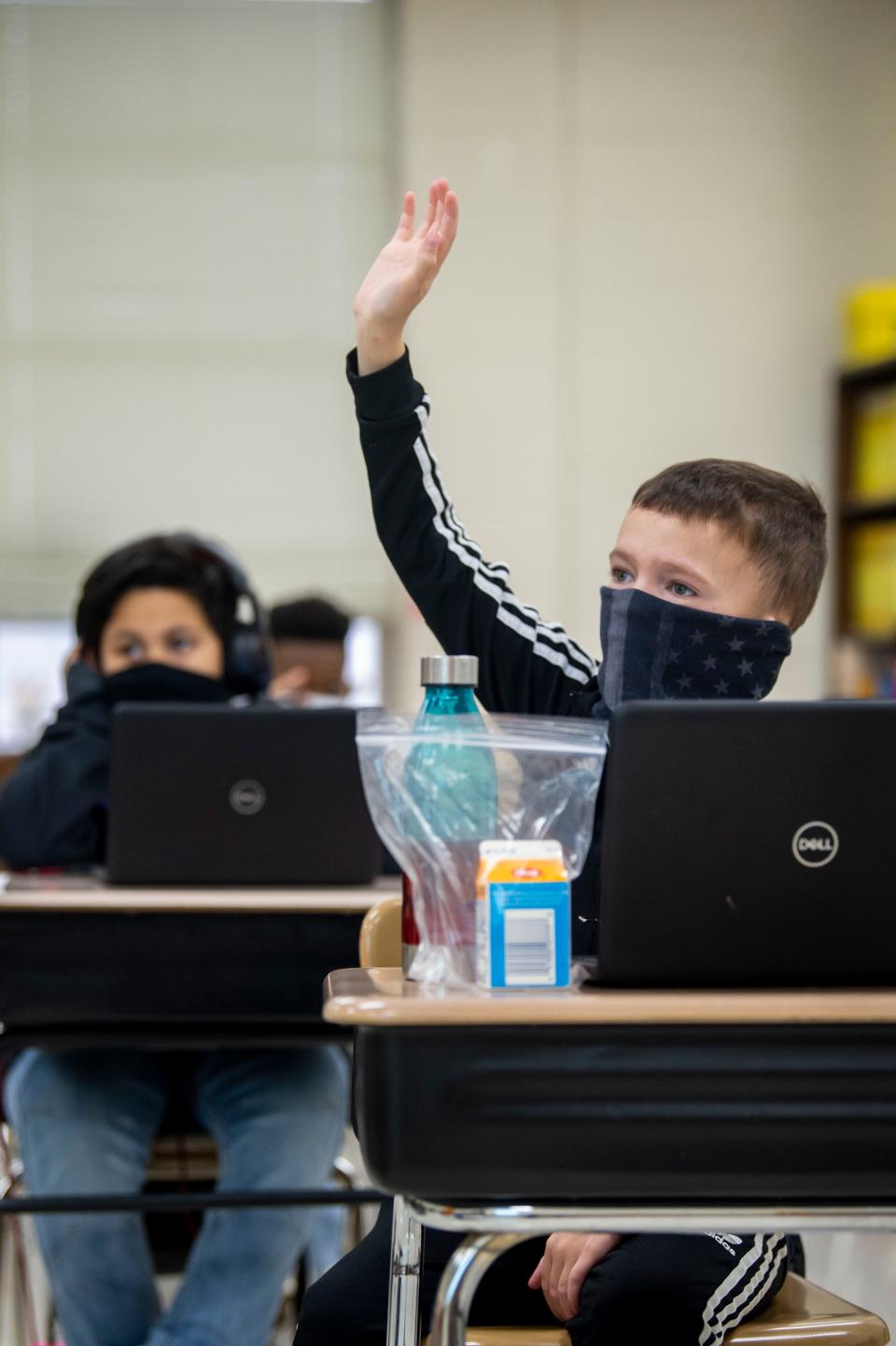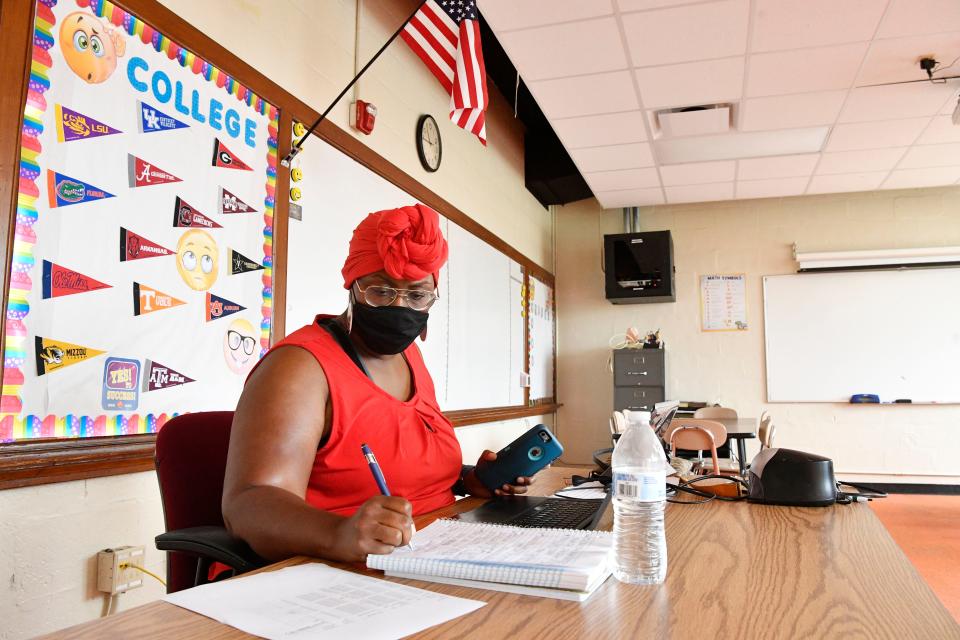Metro Schools continues efforts to fix tech woes as use of classroom technology increases

Technology continues to be a barrier for many Nashville students this school year, but this time the challenges have been occurring inside school buildings.
Since the start of the pandemic, Metro Nashville Public Schools worked to provide laptops to every student, although for some it took months for their computers to arrive last school year.
Now that the majority of students are back in school buildings, teachers, parents and district officials report issues related to the district's actual IT infrastructure.
Those issues can sometimes look like students unable to log in to their devices or the internet being down on an entire campus. They might not have access to assistive technologies like software that reads text aloud for students with individual needs or to a web-based textbook or personalized learning platform.
YOUR INBOX: Stay up-to-date on Tennessee's top education news by signing up for our new weekly newsletter, School Zone. Sign up here.
For teachers, this can impact their entire lesson plan, their ability to take attendance or enter grades — even to print assignments or materials.
The district's network has more than 150 buildings with more than 7,500 wireless access points, according to district spokesperson Sean Braisted.
Braisted acknowledged some of the problems that have plagued the district so far this school year.

"We have been experiencing some technology issues due to higher loads on the system. While our district’s internet has largely remained online and capable of handling higher bandwidths, the ability to connect to the Wi-Fi network was an issue because of problems with user authentication loads slowing the system," he told The Tennessean in an email.
In September, the IT services team ordered additional servers to meet the higher demand, Braisted said, but thanks to the nation's omnipresent supply chain issues, those servers weren't installed until the end of October.
Most recently, the district saw a near network-wide service outage the day students returned to schools after the Veteran's Day holiday.
On Thursday, Nov. 11, the district's network underwent planned maintenance that required the entire system to go offline, but the maintenance didn't go as planned and many schools were still offline the next day.
No wifi or Internet service of any kind in our building this morning. MNPS is working to restore service. #breathe
— Meigs Magnet (@Meigs_Magnet) November 12, 2021
Around 7:30 a.m. on the morning of Friday, Nov. 12, Meigs Academic Magnet Middle School tweeted an update to students.
"No Wi-Fi or Internet service of any kind in our building this morning. MNPS is working to restore service. #breathe," the post read.
All schools had Wi-Fi connectivity by late Friday afternoon, Braisted said.
Districts across the country have ramped up technology amid the pandemic, especially in places where the majority of students have learned virtually at home for long periods of time. Federal coronavirus relief funds also helped districts shore up the technology used in classrooms and add staff to help manage it.
Even actual learning is happening more and more online. Students use their laptops during class, sometimes following along with a lesson or just accessing reading materials on a screen rather than a physical copy.
In Metro Schools, all students have personalized learning time every day where they have access to learning platforms or intervention programs, like Lexia, a literacy program, or IXL, another learning platform. Students participating in the district's high-dosage tutoring program — part of a statewide initiative — meet with tutors virtually during this time.
But when the network is down, lots of learning comes to a halt.

The district is in the process of updating 6,300 of its more than 7,000 wireless access points in buildings across the district this fall thanks to $11.6 million from both local and federal eRate funding. eRate is an Federal Communications Commission program that leverages federally allocated funds from collected 911 service fees that districts can tap.
Metro Schools also has five technology service positions that are vacant but hopes to fill and fund with some of the $38.9 million the district set aside for technology infrastructure from the three rounds of coronavirus relief funds.
The district has been unable to fill those five positions in part because three of them were frozen in last year's operational budget to make up for a budget shortfall elsewhere.
But it can also be difficult for school districts to compete with private industry when it comes to technology jobs.
The district's plan for spending the $276 million it received in the third round of coronavirus relief funding, or ESSER 3, also included additional IT staff positions and supports.
The district only received approval of its spending plan on Monday.
"Now that the state has approved the application, we can begin posting for these positions which include [full-time-employees]s (additional technical support specialists) and contracted services," Braisted said.
Want to read more stories like this? A subscription to one of our Tennessee publications gets you unlimited access to all the latest news throughout the entire USA TODAY Network.
Meghan Mangrum covers education for the USA TODAY Network — Tennessee. Contact her at mmangrum@tennessean.com. Follow her on Twitter @memangrum.
This article originally appeared on Nashville Tennessean: Metro Nashville Public Schools trying to fix classroom technology woes
